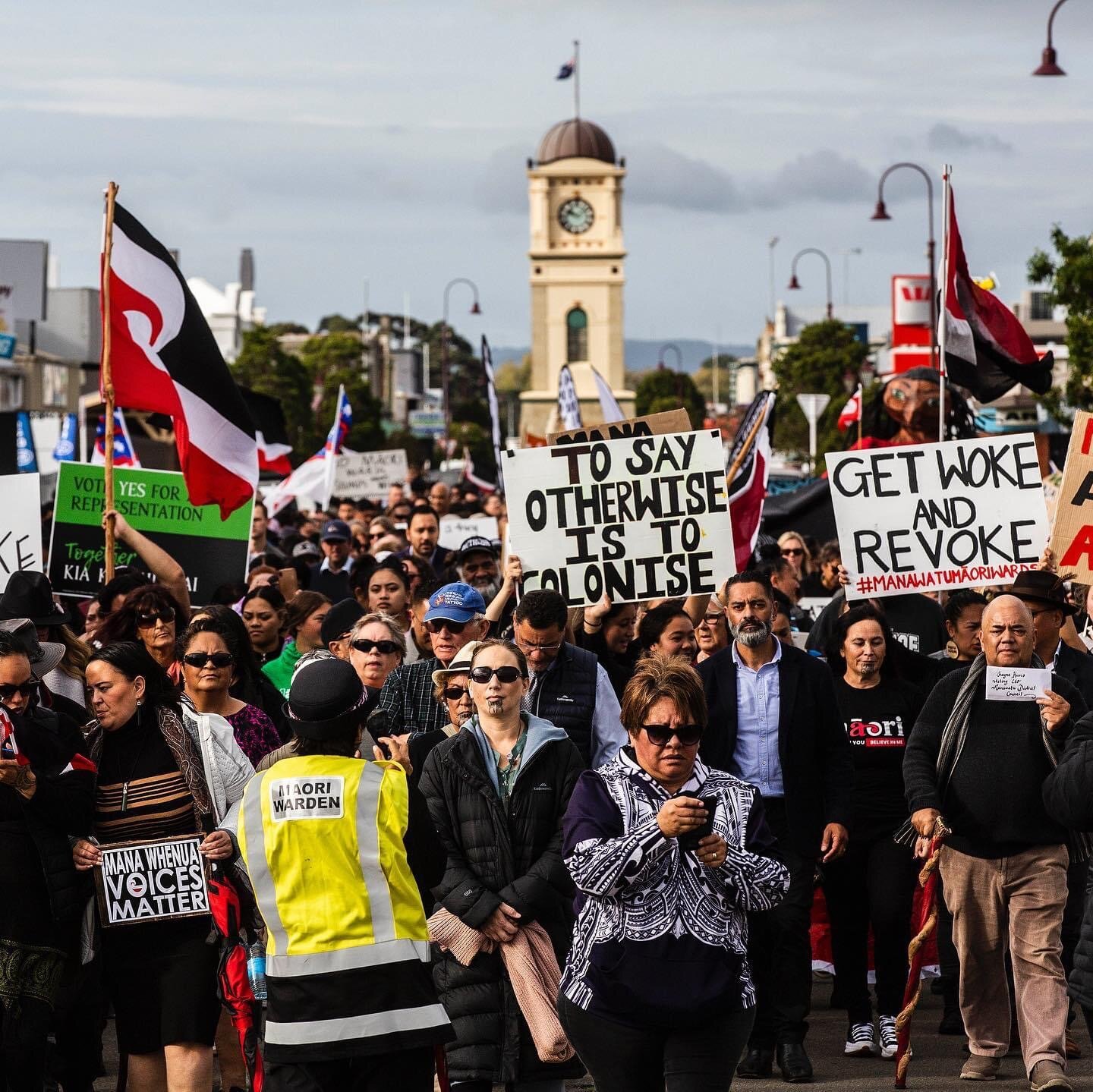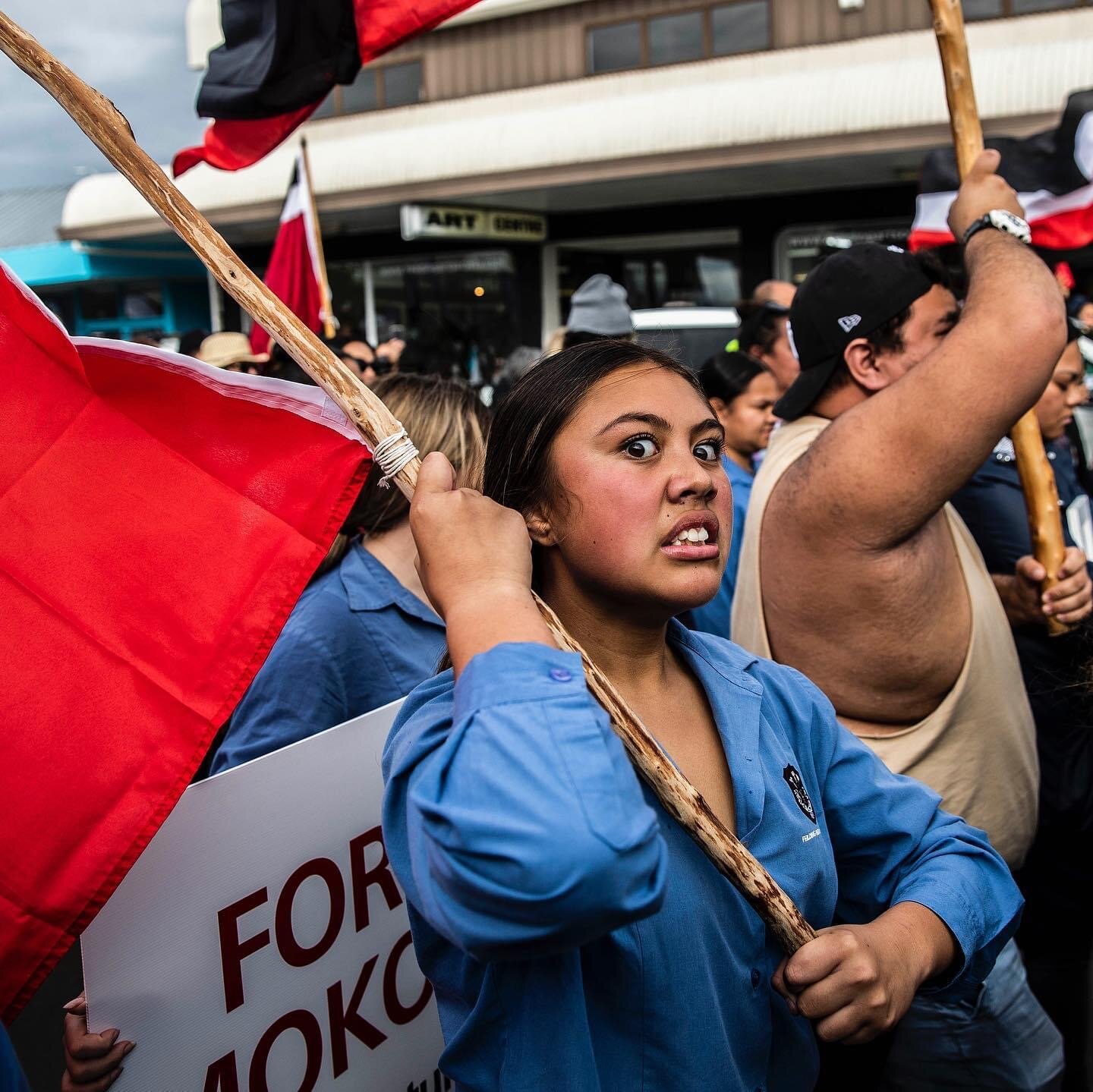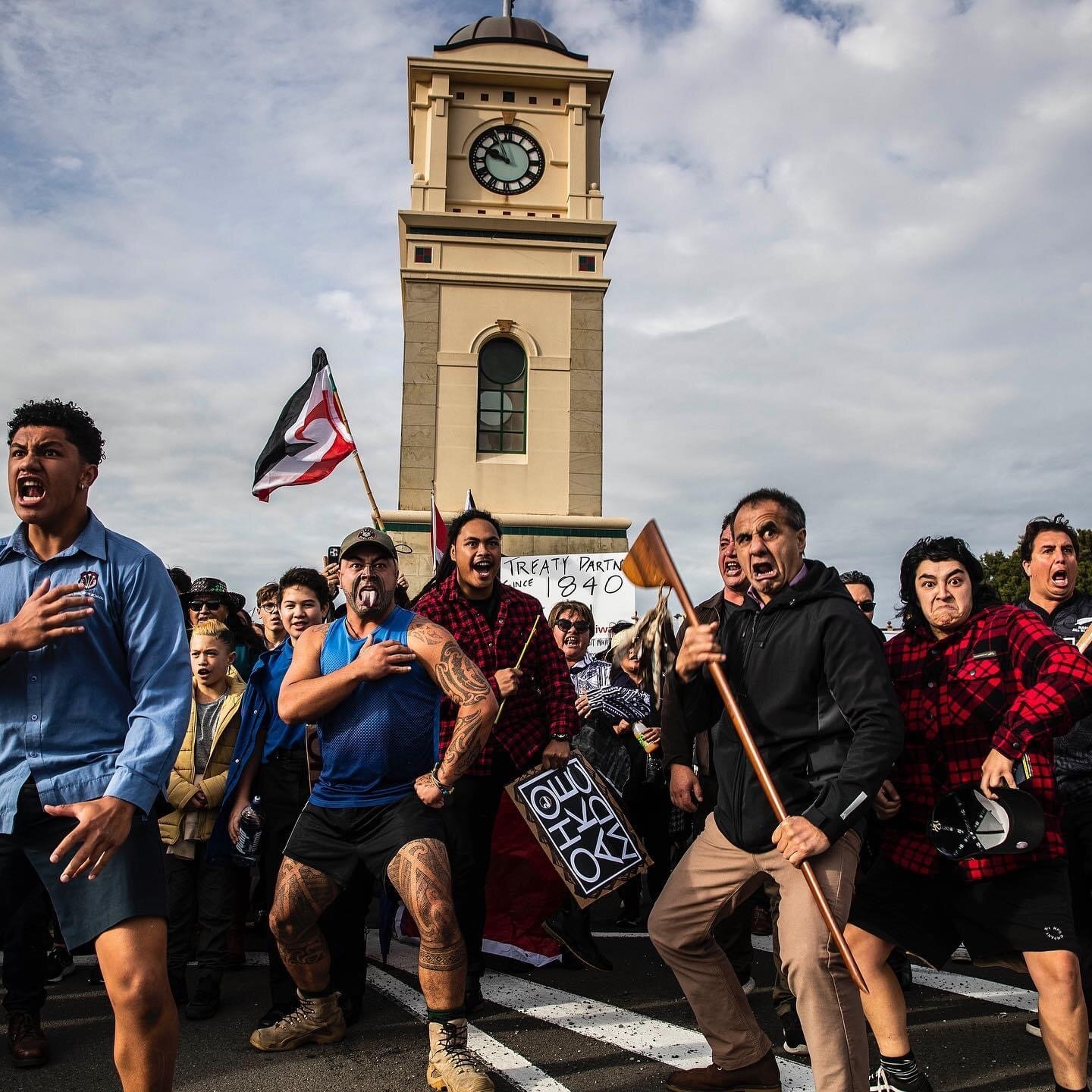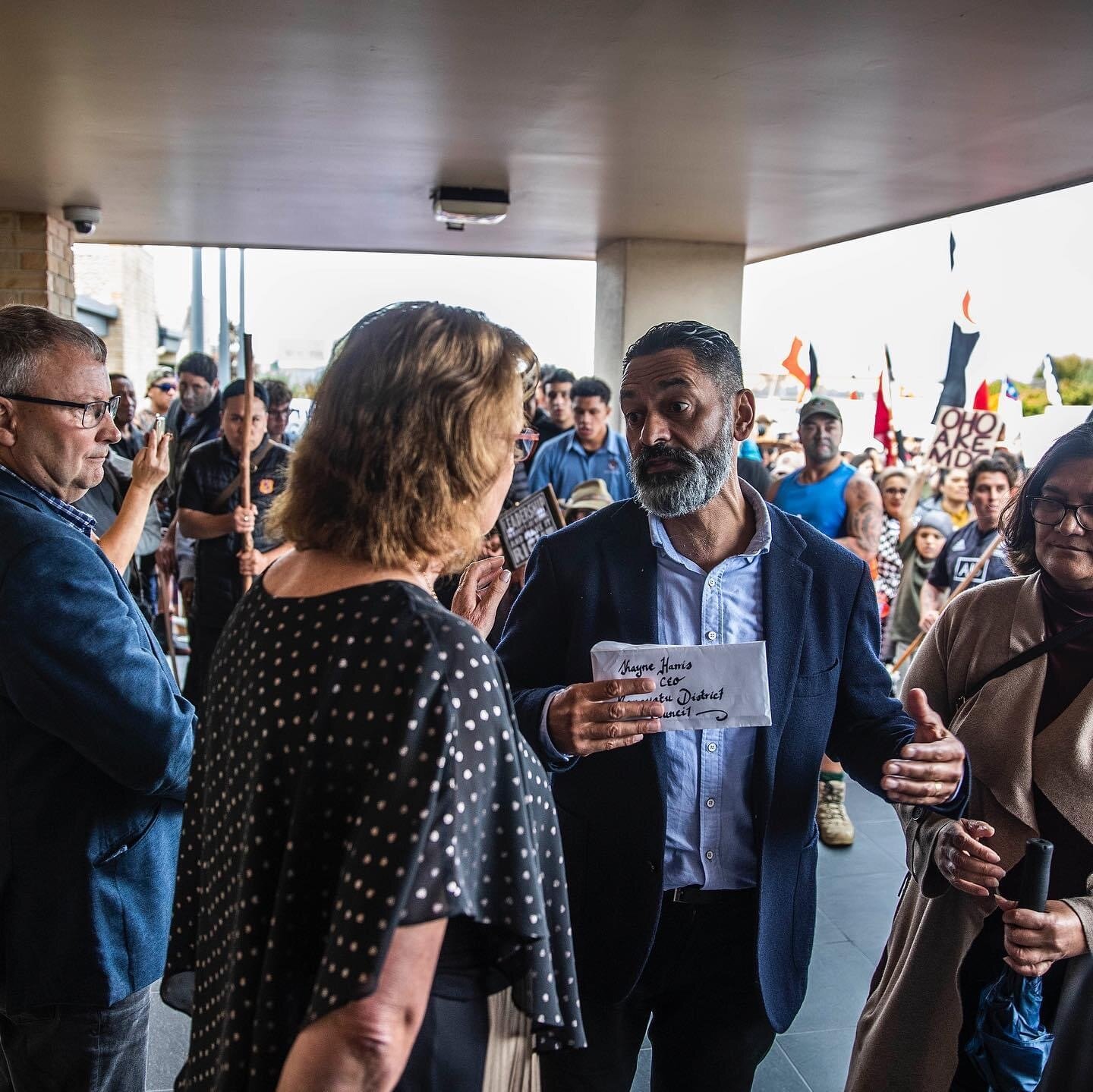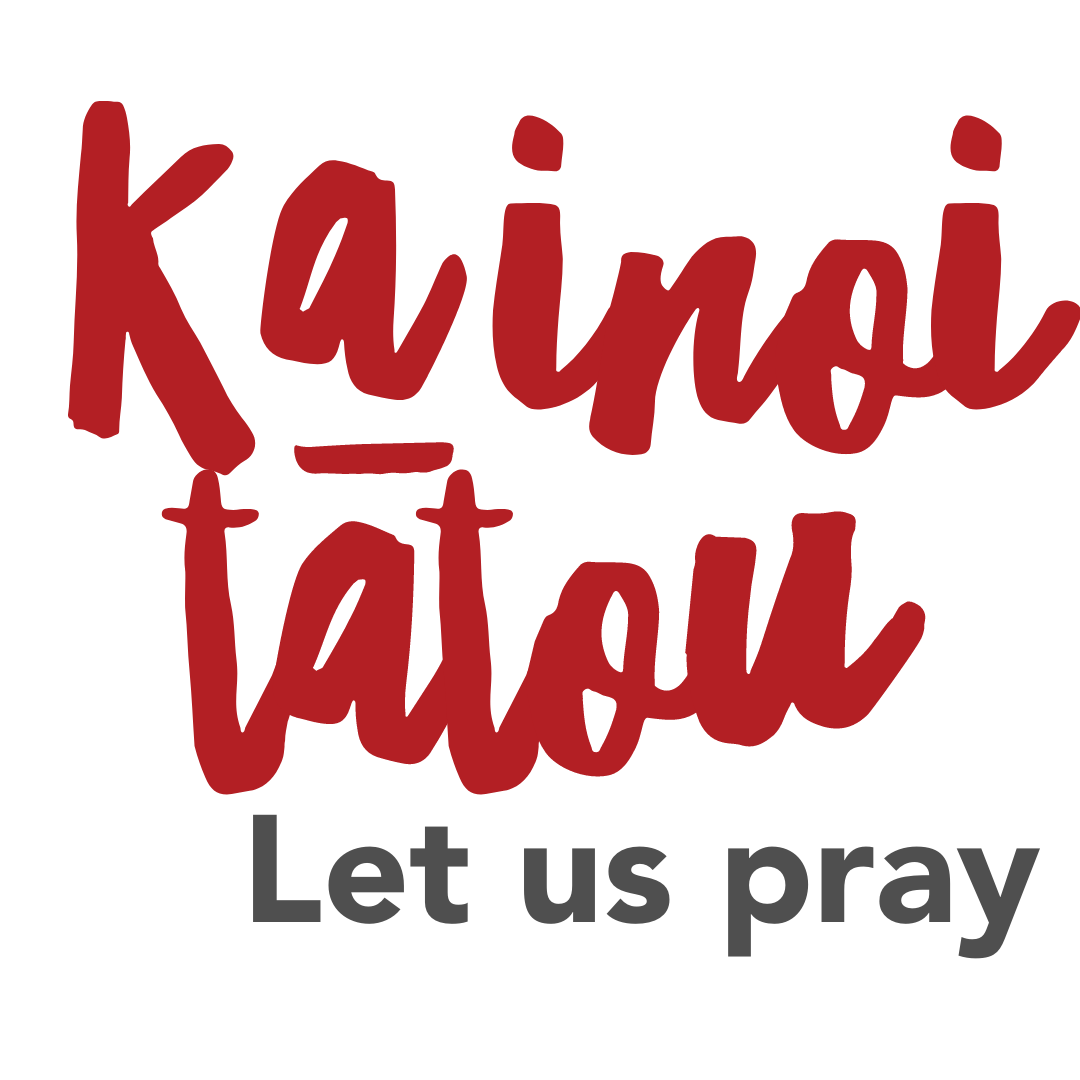Māori wards in Manawatū: Church leaders march with hundreds
Manawatū iwi were hopeful for a voice at the Council table with the establishment of a Māori ward in time for the 2022 local election. But when Council voted against the move on the 6th of May, hundreds of Feilding locals - Māori and Pākehā alike - decided to march on Council offices. Joining the march was the town's Priest in Charge, Rev. Sarah McMenamin, and colleagues from our nearby churches in Palmerston North, Rev. Andy Hickman and Rev. Amy Houben.
L-R: Rev. Sarah McMenamin, Oroua Parish Priest in Charge; Rev. Amy Houben, St Matthew’s Palmerston North Priest in Charge, Rev. Andy Hickman, Milson Combined Church Priest in Charge.
Sarah joined the march partly to support two of her parishioners, Councillors Hilary Humphrey and Alison Short, who supported the introduction of Māori wards, but also because she felt that was where Jesus would be. "The Jesus I see in the gospels is the Jesus who advocates for those without a voice, for those who are not the privileged, for those who are not the powerful in our societies," she told us. Māori representation in Parliament has come a long way since the introduction of guaranteed Māori seats 150 years ago, with 20 percent of our current Cabinet being Māori. But the Treaty's indigenous signatories are still alarmingly silent from the nation's council tables, with only five percent of councillors elected in 2007 being Māori, increasing to 13.5% now. That means that local mātauranga (knowledge) which brings a uniquely Māori worldview and pre-dates European settlement is missing from our local government processes, so intrinsically linked to how we value, use and relate to te taiao (the environment).
In Manawatū, previous Priest in Charge Rev. Wendy Scott stood up for Māori wards when in 2018, the district voted overwhelmingly to veto the Council's decision to introduce them. Māori wards have been left to local councils to decide upon since 2002, when the Government introduced legislation to allow them - however the law also allowed binding referenda that could veto Council decisions. To date, only two of the 24 councils who have attempted to introduce them have been successful. The current Government has recently changed that, removing the ability for the public to veto council decisions. But Manawatū District Council stilled erred on the side of the status quo, deciding to defer their decision until after next year's election, disappointing representatives from all twelve marae in the district who unanimously supported the proposal. "And so, I see it as a gospel calling for me as a church leader to stand with those who are asking for a voice at the table," Sarah says. "I truly believe that's where Jesus is, and that in doing so the Kingdom of God is breaking through just a wee bit more here in the Manawatū district."
Photos: David Unwin / Stuff
The protest hikoi was believed to be the biggest Feilding has ever seen, if not the only one. Sarah told us that the atmosphere was "one of positivity, challenge and desire for change." But the process to gain Māori representation on councils is not without controversy, and not just within Manawatū. New Plymouth District Council has decided to implement a Māori ward without consultation, and local business owner Shona Glentworth wrote in the Taranaki Daily News of her support, answering the critics of Māori wards. In response to the claim that Māori wards are racist, she identified that the sad reality is that despite being promised tino rangatiratanga over their lands and resources in Te Tiriti o Waitangi, Māori are still largely excluded from decision-making about said resources. Many opponents of guaranteed Māori representation quote Governor Hobson's phrase "we are all one people," but Glentworth recalls a discussion on the topic around New Plymouth's council table several years ago: "If we are one people, why can it not be Māori?"
So where to now for the marchers in Feilding? Before the protestors arrived at the Council building on Tuesday, work was already underway to overturn the decision. Councillors who voted for the Māori ward's establishment submitted a notice of motion to the Council's Chief Executive to revoke the May 6th decision. Stuff reports: "They justified the motion on the grounds that council had not listened to the only community who would be effected by the decision, with the consequence of council not meeting their legislative responsibilities of consulting with iwi." That means that Council will face another opportunity to approve the establishment of a Māori ward in its full meeting on the 20th of May - one day before the deadline to do so in time for the 2022 local body election.
Want to read more? Here are some useful articles:
Hundreds of people join historic march for Māori wards in Manawatū - Stuff
Māori wards: A voice on local council grounded in the Māori world view (an explainer) - RNZ News
Māori wards amendment bill passes final reading in Parliament - RNZ News
Māori ward in Manawatū District only path to an inclusive democracy - Stuff
What are you afraid of? Arguments against Māori ward don't stack up - Taranaki Daily News (Stuff)
Let's pray that justice is done in Manawatū District. Pray that councillors will see the need for the voiceless to have a voice, and to honour the covenant that the Crown and Māori entered into in 1840. Pray that our people will have strength and wisdom to speak truth to power when it is needed, and to stand with the powerless when it is needed.


